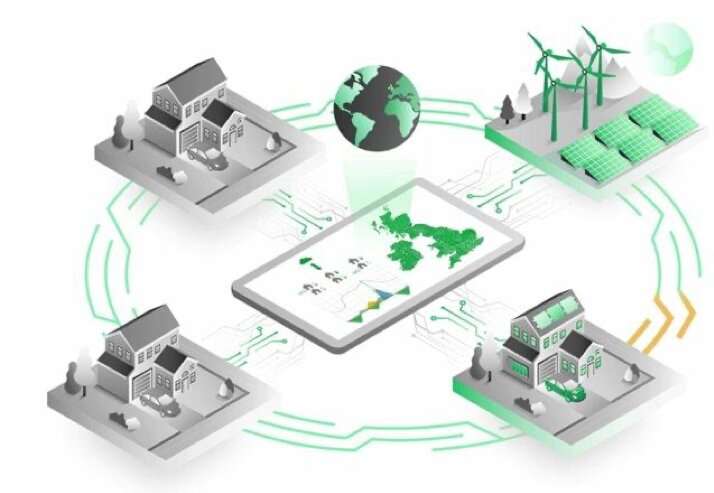Energy communities will play a key role in building the more decentralized, less carbon intensive, and fairer energy systems of the future. Such communities enable local prosumers (consumers with own generation and storage) to generate, store and trade energy with each other—using locally owned assets, such as wind turbines, rooftop solar panels and batteries. In turn, this enables the community to use more locally generated renewable generation, and shifts the market power from large utility companies to individual prosumers.
Energy community projects often involve jointly-owned assets such as community-owned wind turbines or shared battery storage. Yet, this raises the question of how these assets should be controlled—often in real time, and how the energy outputs jointly-owned assets should be shared fairly among community members , given not all members have the same size, energy needs or demand profiles. It turns out that we can use Artificial Intelligence not only to use more renewable energy and protect the lifetime of expensive assets (such as batteries), but also to devise fairer ways to divide joint gains.
A paper recently published in Applied Energy by researchers from the Smart Systems Group (SSG) at Heriot-Watt University in Edinburgh, Scotland (UK), has shown that tools from distributed AI (specifically multi-agent systems) and cooperative game theory can be efficiently used to answer these questions. Their work […]
Click here to view original web page at techxplore.com
Credit: HW University

